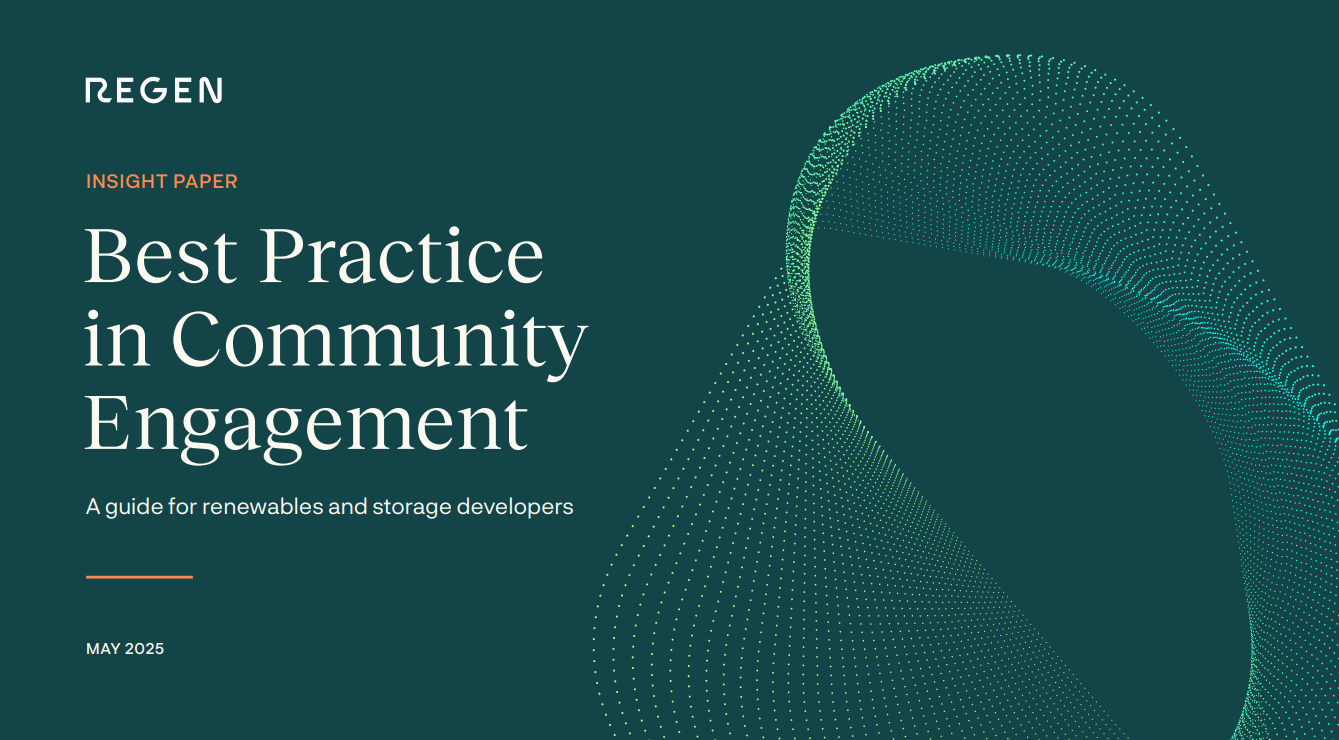Regen has created a best-practice guide to community engagement for renewable energy and storage projects. The guide offers practical advice and examples to support meaningful and effective community engagement at every stage of a project.
Regen has created a best-practice guide to community engagement for renewable energy and storage projects – a critical factor in securing local support and achieving the UK’s Net Zero targets. Developed with members of our planning working group, the guide offers practical advice and examples to support meaningful and effective community engagement at every stage of a project.
About this guide
 Reaching Net Zero means big changes in how we heat our homes, travel, work and interact with energy, which makes public opinion a critical piece of the puzzle. To achieve clean power quickly and fairly, the energy sector must prioritise meaningful community engagement. This document is a practical guide for engaging with communities, setting out a series of best practices for organisations developing renewables and storage projects, followed by case studies demonstrating high-quality engagement.
Reaching Net Zero means big changes in how we heat our homes, travel, work and interact with energy, which makes public opinion a critical piece of the puzzle. To achieve clean power quickly and fairly, the energy sector must prioritise meaningful community engagement. This document is a practical guide for engaging with communities, setting out a series of best practices for organisations developing renewables and storage projects, followed by case studies demonstrating high-quality engagement.
When people feel genuinely heard and involved in decision making, they are far more likely to support and even advocate for renewable energy and storage projects. Addressing concerns, incorporating local knowledge and ensuring that projects are both socially acceptable and beneficial to the communities in which they are hosted will ensure we bring people with us on the journey to Net Zero.
The guide is made up of the following sections:
- Five principles of good engagement: Good community engagement practices foster trust, transparency and mutual understanding between developers and local communities. Here we suggest five key principles.
- Engagement timeline and approach: Early engagement ensures that people have the option to influence project design. These stages of engagement, and suggested activities for developers at each, are set out in an interactive timeline.
- The strategic case: People are more likely to support a project when they understand its role in the wider transition to clean energy, as well as why it needs to be in their local area. When engaging with communities, explaining both the national and local context helps build trust and clarity.
- Community benefits: Community benefits often play a crucial role in the successful development and acceptance of renewable energy and storage projects. These voluntary benefits serve as a tangible and lasting contribution that renewable energy projects can offer to host communities.
- Best practices for engagement: When people feel genuinely heard and involved in decision making, they are far more likely to support and even advocate for renewable energy and storage projects. These practices can save you time and money by making projects more acceptable to host communities.
- Addressing opposition and misinformation: Community opposition to renewable energy projects is often complex. People have valid questions about how the project will impact their homes, local environment and daily lives. Good-quality engagement can help minimise such opposition.
- Case studies: Whitelee wind farm; Forest Gate solar farm; 9CC case; and Renewco M74 West.
End of Preview

